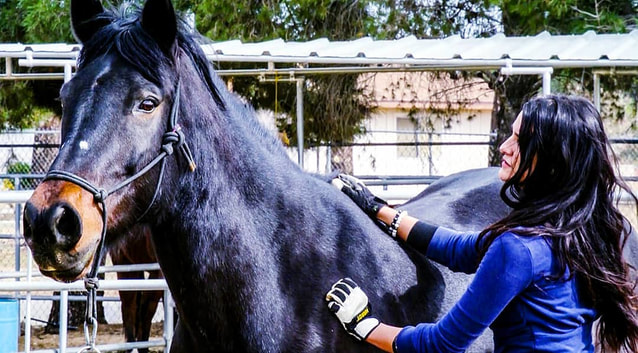What is Natural Horsemanship?
"Natural Horsemanship is doing what's best for the horse,
instead of doing what's best for you."
My vision and beliefs:
When I started with horses, I was inspired by the old masters like Ray Hunt, Mark Rashid and Buck Brannaman. Their way of not "working" - but connecting with their horses felt so pure and true, I could feel it in my bones. I was 9 years old at the time and thought; 'This is what I want to learn, this is what I will pursue.' Now, over 20 years later, I have a passion. To help those who otherwise cannot be heard, to give them a voice and give them their lives back. And horses are in dire need of someone who can speak up for them.
Setting yourself up for succes or failure
Horses are too spiritual and too pure to just grab them, hop on their backs and ask for something without ever giving anything in return, like partnership, comfort, respect and an appropriate environment to live in. Somehow, along the way, we've lost our ability to emphasize, to put someone else's needs before our own. We do this when we have children, we make the best choices possible and put our own lives on hold, just to support them. So why not with horses?
When you're setting goals, or having dreams for your horse, how long does it take you to get to the things that really matter? It's not about the lessons, your tack, your fancy outfit and brand new trailer. It's about making sure your horse is willing and able to do the things you ask from him. Not afraid of the consequences when he fails, but asking for guidance when things get tough. Like true partners.
Working & living with horses: More than our eyes can see
Over the years, while working with all kinds of horses in The Netherlands and USA, I have tested my theories (yes, I have many!) about partnership/leadership as the main ingredient during my rehabilitation program. These horses all had different backgrounds, like racehorses, cutting horses, hunter jumpers, reining horses, warmbloods, coldbloods, thoroughbreds. All with often one thing in common: a complicated and heart-breaking past, which has made them either angry at - or afraid of - people.
Just physical training and care aren't the right tools for these horses. They'll need much more support and guidance on an emotional and spiritual level. Like humans and other animals, horses have several energy fields. Humans have four (physical, emotional, mental and spiritual), horses have three: physical, emotional and spiritual. Each layer has a cellular memory, in which all kinds of impressions are being stored during their lives.
The physical layer is their body, with the cellular memory of wounds, trauma and disease.
The emotional layer exists a little outside the body, and carries feelings, emotions and emotional trauma.
The spiritual layer is the most distant, with humans this is the layer that carries our karmic lessons and trauma we're carrying from a life we've lived before. Since horses don't carry anything with them from past lives, this layer represents the Spirit itself, the horse's gift to the world. It's the horse in his highest, purest form.
As you can see, horses do not have a mental layer. So why is that?
Horses are not able to have negative thoughts or feelings about themselves, or limitative thoughts. They don't hold grudges, they just forgive and let go. However. Horses àre able to carry guilt, fear, all empathetically taken on from the humans it serves. Which means that when you're buying a new horse, they might have some energy blockages due to taking over the emotions from their previous owner(s). Since horses, like most animals, are more grounded than us humans, they are masters in empathetically taking on a humans emotion and then release and clear it very quickly. But if the horse's own needs aren't met, like lack of interaction with other horses, the wrong diet or even neglect/abuse, it gets harder and harder to channel all that (negative) energy. At this point, you'll have a horse that is (either) physically, emotionally or spiritually out of balance. These horses always show typical behavior like cribbing, biting, bolting, shoving, not cooperating, low energy, rearing, bucking or sometimes even attacking.
Integrated Energy Therapy
A great tool (for me) while working with these types of horses, is Integrated Energy Therapy (IET). This is a beautiful and safe way (since I don't necessarily need to be near the horse)to get the energy in their cellular memories flowing again.
For example, a little insight in IET from one of my study books:
"The cellular memory in the area of the throat and lungs is where feelings of shame about self-expression are suppressed. There is a great deal of strength in the throat center of a horse. This is conveyed by the archetypal image of the horse standing very proud and regal, with no sense of pride or boastfulness. Horses have a tremendous ability to be expressive and spontaneous. They have a very large range of expression."
"Energy can be suppressed into the horse's throat center, when a horse chooses to become "domesticated" so that it can enter into the path of service to humans. Some of the energy of a horse's wild spirit is suppressed into the throat center. When the horse is not serving humans and is allowed to be free, this spirit can flow through the cellular memory of the throat center and the horse's true spirited nature will be expressed.
Typical causes for energy blockage:
- Living under conditions where the horse's true spirit cannot be periodically expressed.
- Shame empathetically taken on from the humans it serves."
By Energizing and Integrating the horse's cellular memories, we are able to imprint and restore the right energy that allows the horse to remain strong and true. To me, an essential part of working with horses.
"The Human possesses the one thing that means more to the horse than anything in the world, and that is peace and comfort." - Buck Brannaman


